Results
-
 £40.00
£40.00Starliner
Inspired by NASA's Starliner, this composition offers players interesting, yet easy, melodic material and countermelodies that will let your students work on phrasing and balance while still having fun. Short percussion solos and an emphasis on developing low brass and woodwinds make this an excellent concert opener or contest selection
Estimated dispatch 12-14 working days
-
 £46.00
£46.00Woody Woodblocker
Feature your percussion section, or even a talented faculty member, in this novelty that uses the woodblock as a soloist. Great for developing first-year counting skills, working on balance, countermelodies and easy dynamics, this composition will entertain players and audiences alike.
Estimated dispatch 12-14 working days
-
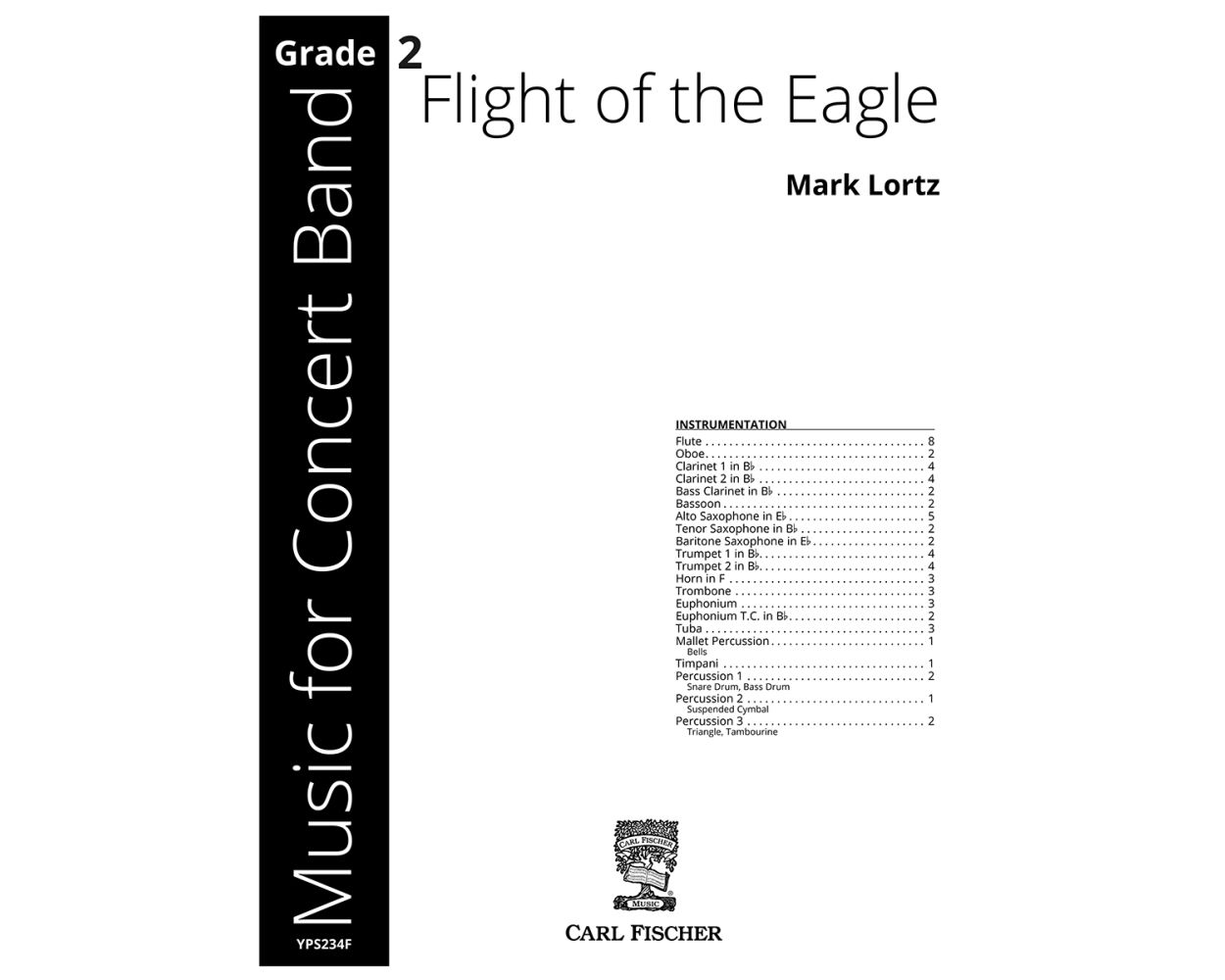 £49.00
£49.00Flight of the Eagle
A driving fanfare that highlights all sections of the band, this easy, yet mature sounding piece will improve the rhythmic and listening skills of your ensemble. Written for grade 2 bands, this soaring selection is perfect for concert, festival or as a concert opener.
Estimated dispatch 12-14 working days
-
 £53.00
£53.00Unicorn Ranch
Full of interesting rhythmic patterns that evoke a horse-like "galloping" feel, this gently dissonant composition is a great way to work on ensemble blend and listening skills. Written at one tempo throughout, it's an easy way to introduce the concept of syncopation while also developing cut-time playing skills. Perfect as a challenging contest, festival or concert selection for younger bands or a lighter selection for more advanced groups.
Estimated dispatch 12-14 working days
-
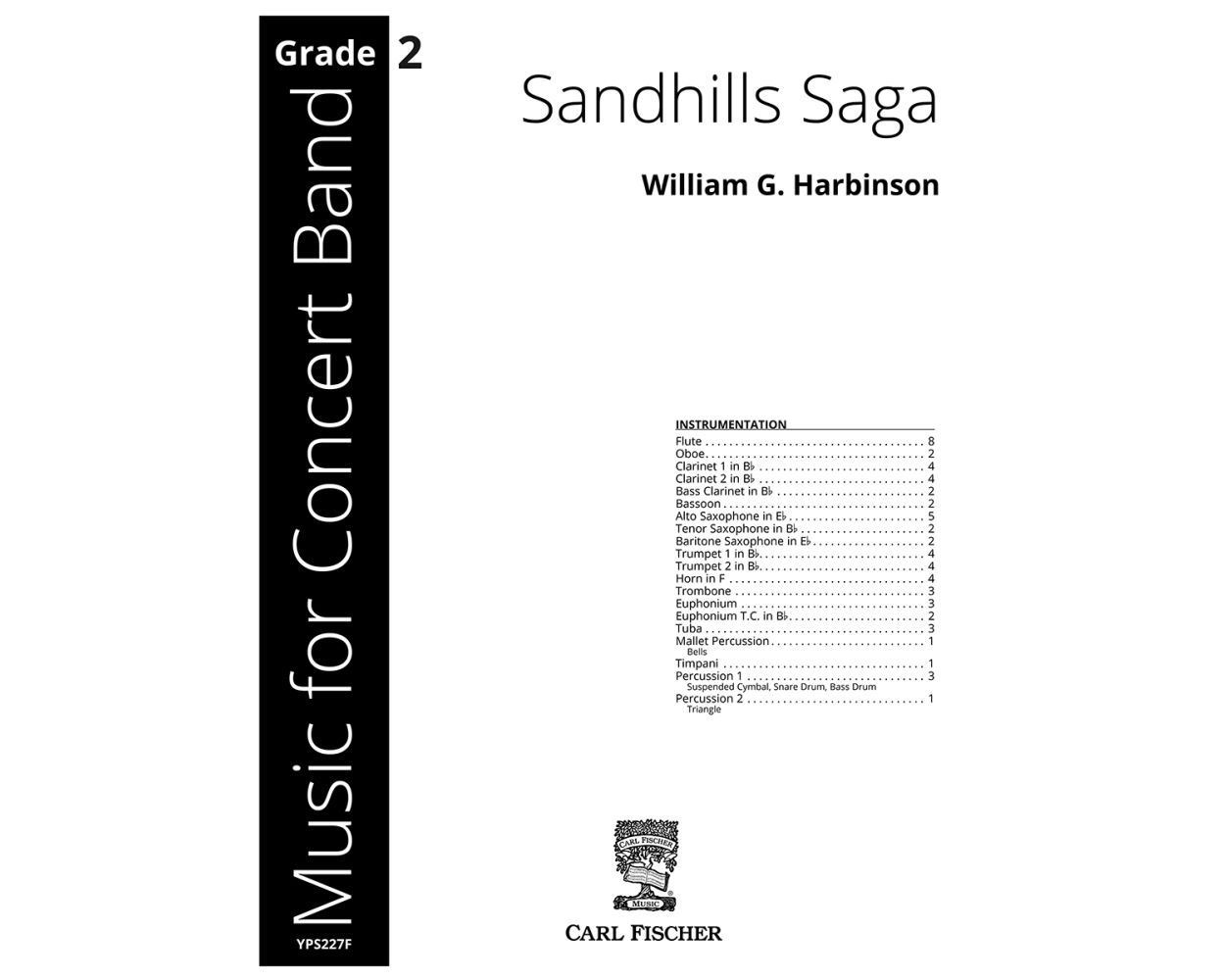 £49.00
£49.00Sandhills Saga
Use the intertwining melodies of this composition to teach the important musical concept of the canon. Each instrument gets a moment to sing out during the development of an easy, yet musically challenging, melody. With a quiet introduction followed by brisk "alla marcia" section with a lively close, use this as a unique concert selection to educate your students and audience as well.
Estimated dispatch 12-14 working days
-
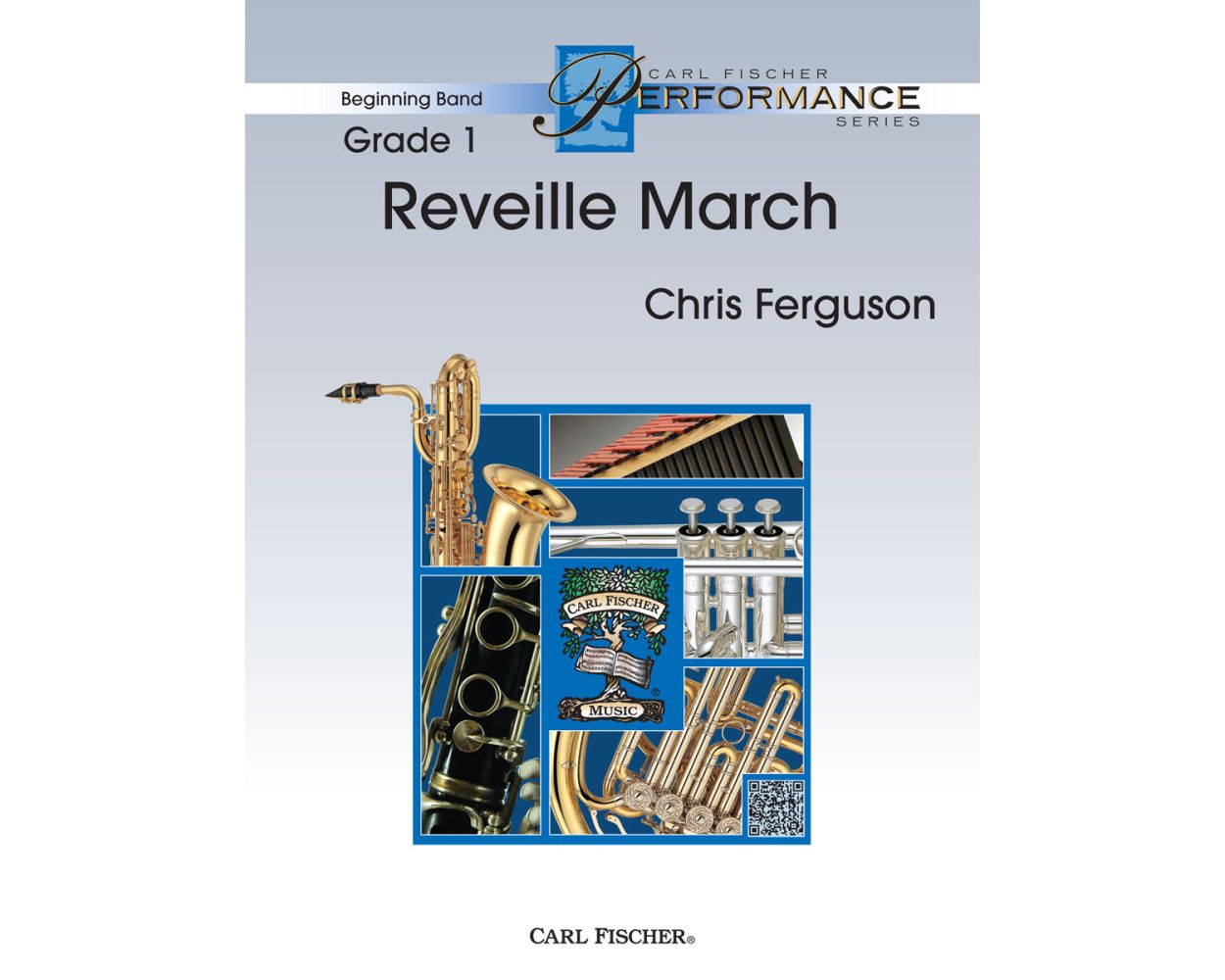 £42.00
£42.00Reveille March - Chris Ferguson
Chris Ferguson combines the standard bugle calls into this easy march for beginning students. Students are already familiar with it so they can be successful right away. The optional solo sections may also be performed in reference to the traditional solo bugle call. Ferguson brings a wealth of experiences working with beginners that have translated into this wonderful new march for young students.
Estimated dispatch 12-14 working days
-
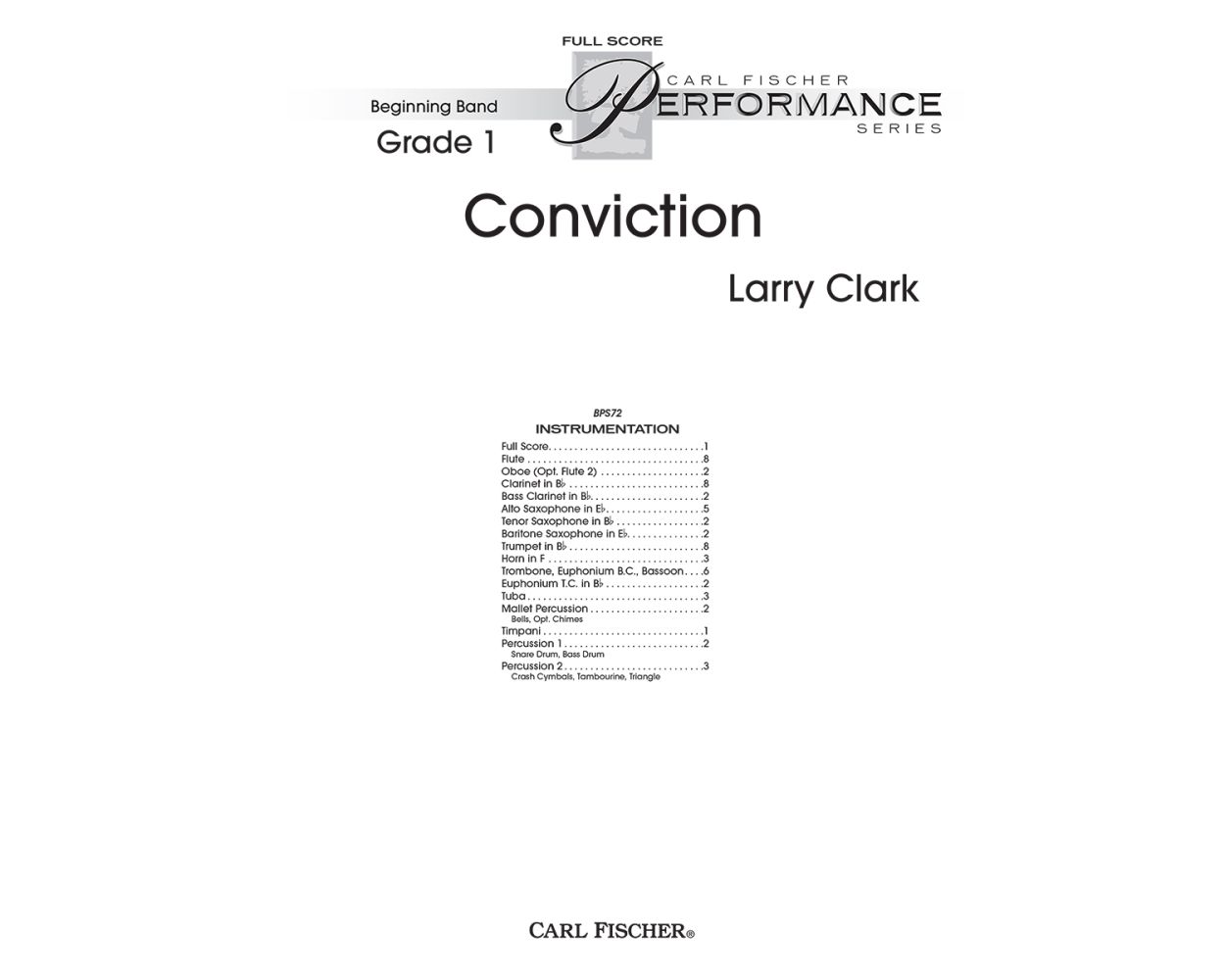 £40.00
£40.00Conviction
For several years, Larry Clark's music for beginning band has set the standard for musical excellence. He always finds a way to make his pieces fresh and sophisticated, incorporating contemporary harmonies with tuneful melodies that students love to play. He is also a master at knowing exactly what this level is capable of and writes technically easy music that still makes any band sound and feel great!
Estimated dispatch 12-14 working days
-
 £40.00
£40.00Follow The Leader
A very easy original march from popular composer Joseph Compello. A perfect opportunity to teach the march style to the youngest of band students.
Estimated dispatch 12-14 working days
-
 £49.00
£49.00Here We Come A-Wassailing - Anonymous
An easy and straightforward arrangement of a popular Christmas Carol that features clever rhythmic variations on the tune. Mildly dissonant harmonies and imaginative scoring, including a brief, but effective, solo for the percussion section, add spice to the traditional Christmas brew.
Estimated dispatch 12-14 working days
-
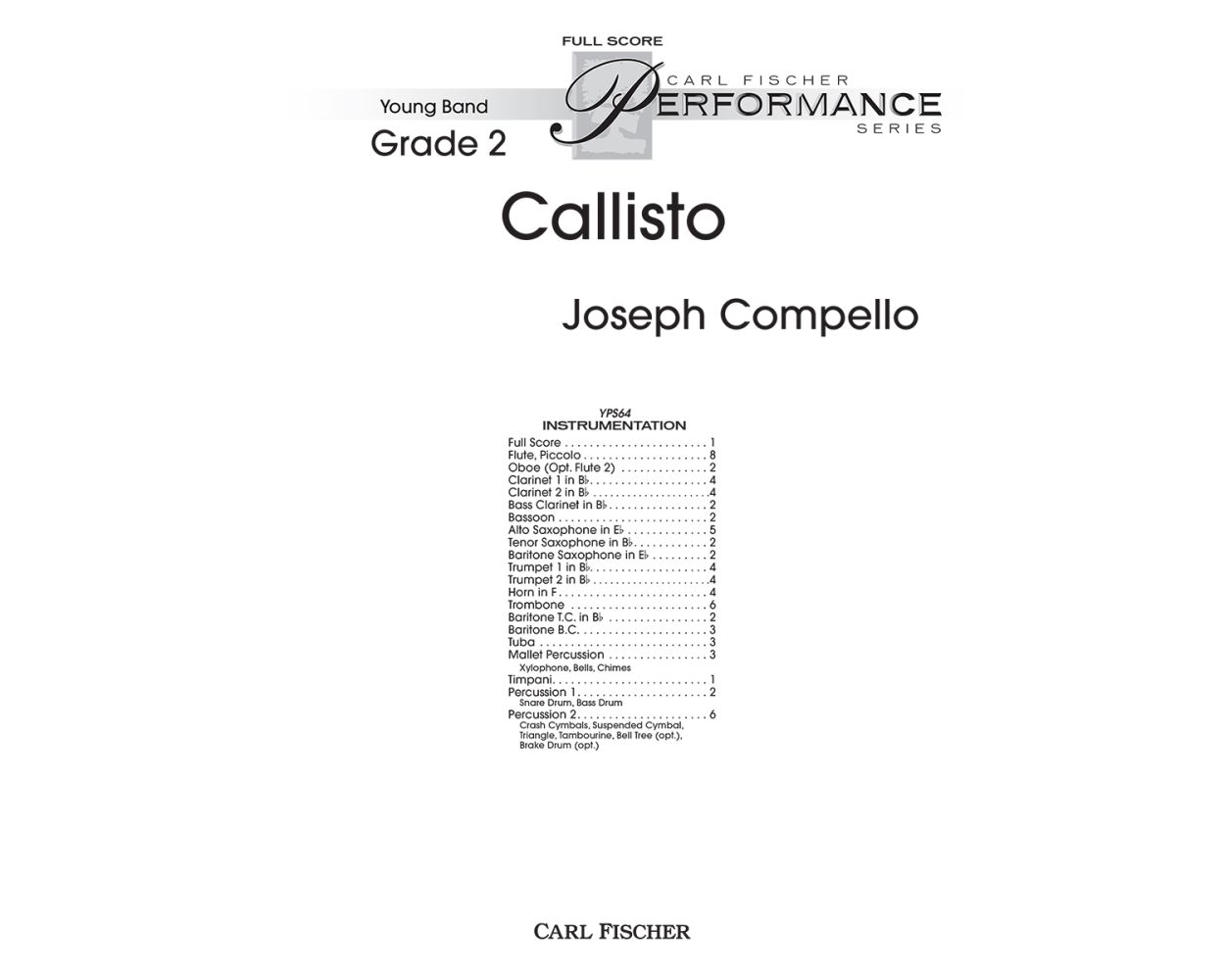 £57.00
£57.00Callisto
A winning and moderately easy concert piece that takes its name from one of the moons of Jupiter, Callisto is a vibrantly scored set of two variations on a fragment of a theme from the Jupiter movement of Gustav Holst's orchestral suite, The Planets. The characteristic flatted-7th of much English folk music is retained in both the quick opening section and the slow, reflective variation that forms the B section of this clever and appealing overture-style piece.
Estimated dispatch 12-14 working days
